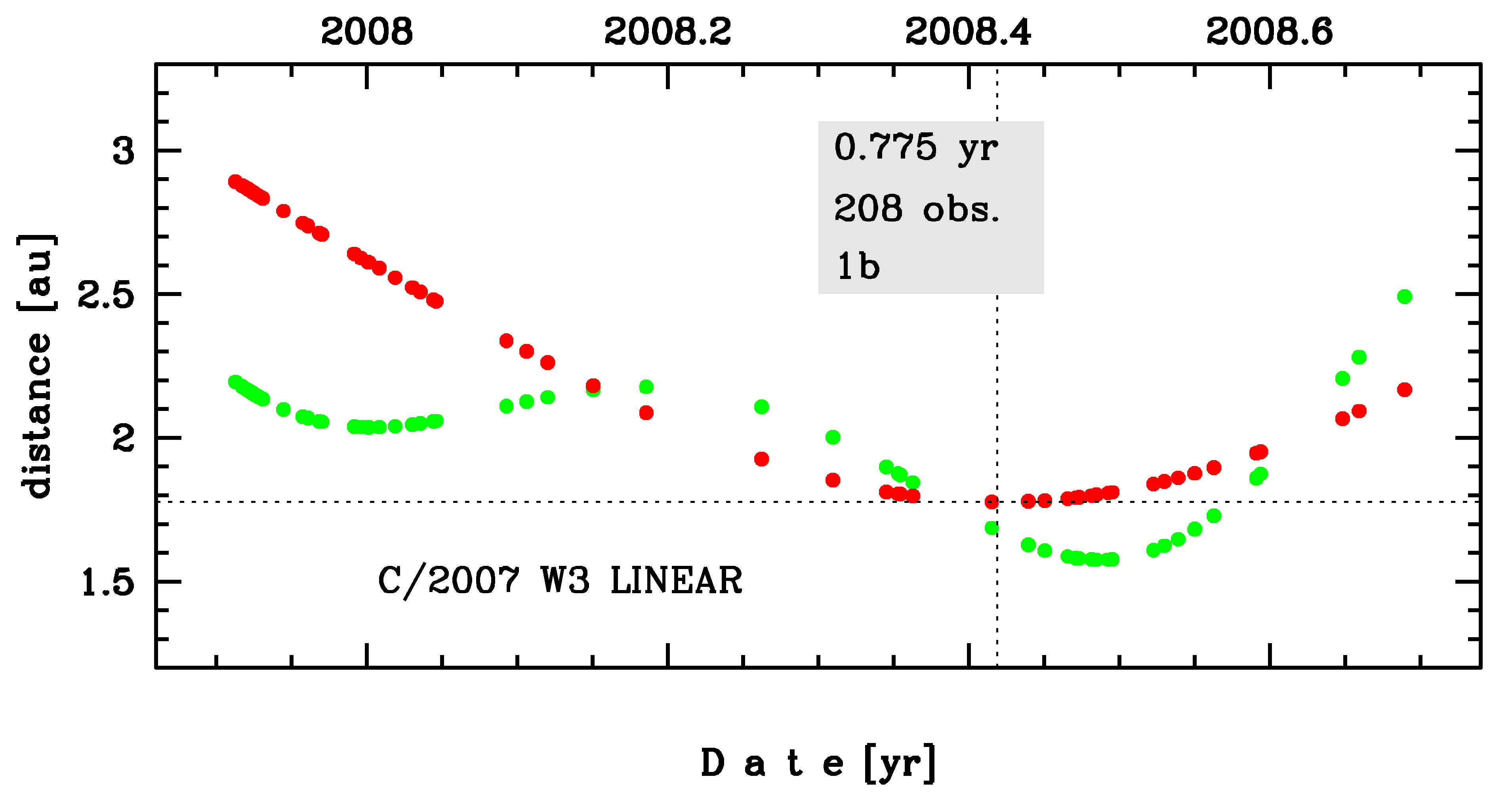C/2007 W3 LINEAR
more info
Comet C/2007 W3 was discovered on 29 November 2007 with Lincoln Laboratory Near-Earth Asteroid Research project; that is about 6 months before its perihelion passage. It was observed until 8 September 2008.
Comet had its closest approach to the Earth on 27 June 2008 (1.576 au), about 3.5 weeks after its perihelion passage.
Solutions given here are based on data spanning over 0.775 yr in a range of heliocentric distances: 2.89 au – 1.777 au (perihelion) – 2.17 au, and the non-gravitational acceleration is well-detectable in its motion during the period covered by positional observations (about nine months).
This Oort spike comet suffers moderate planetary perturbations during its passage through the planetary system and these perturbations lead to a more tight future orbit (see future barycentric orbit).
See also Królikowska and Dybczyński 2013 and Królikowska 2020.
Comet had its closest approach to the Earth on 27 June 2008 (1.576 au), about 3.5 weeks after its perihelion passage.
Solutions given here are based on data spanning over 0.775 yr in a range of heliocentric distances: 2.89 au – 1.777 au (perihelion) – 2.17 au, and the non-gravitational acceleration is well-detectable in its motion during the period covered by positional observations (about nine months).
This Oort spike comet suffers moderate planetary perturbations during its passage through the planetary system and these perturbations lead to a more tight future orbit (see future barycentric orbit).
See also Królikowska and Dybczyński 2013 and Królikowska 2020.
| solution description | ||
|---|---|---|
| number of observations | 208 | |
| data interval | 2007 11 29 – 2008 09 08 | |
| data type | significantly more measurements before perihelion (PRE+) | |
| data arc selection | entire data set (STD) | |
| range of heliocentric distances | 2.89 au – 1.78 au (perihelion) – 2.17 au | |
| detectability of NG effects in the comet's motion | comet with determinable NG~orbit | |
| type of model of motion | GR - gravitational orbit | |
| data weighting | YES | |
| number of residuals | 411 | |
| RMS [arcseconds] | 0.54 | |
| orbit quality class | 1b | |
| orbital elements (heliocentric ecliptic J2000) | ||
|---|---|---|
| Epoch | 2008 05 14 | |
| perihelion date | 2008 06 02.79982937 | ± 0.00016209 |
| perihelion distance [au] | 1.77662079 | ± 0.00000162 |
| eccentricity | 1.00012266 | ± 0.00000359 |
| argument of perihelion [°] | 112.628170 | ± 0.000087 |
| ascending node [°] | 73.068965 | ± 0.000022 |
| inclination [°] | 78.673484 | ± 0.000026 |
| reciprocal semi-major axis [10-6 au-1] | -69.04 | ± 2.02 |
